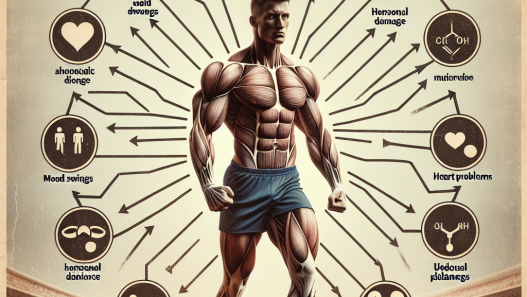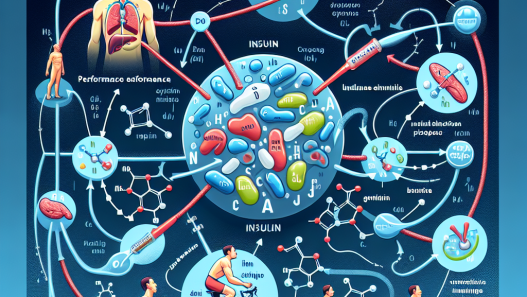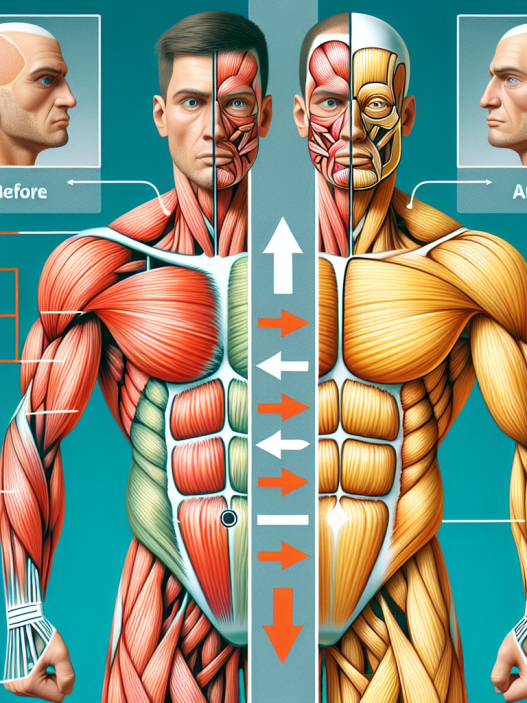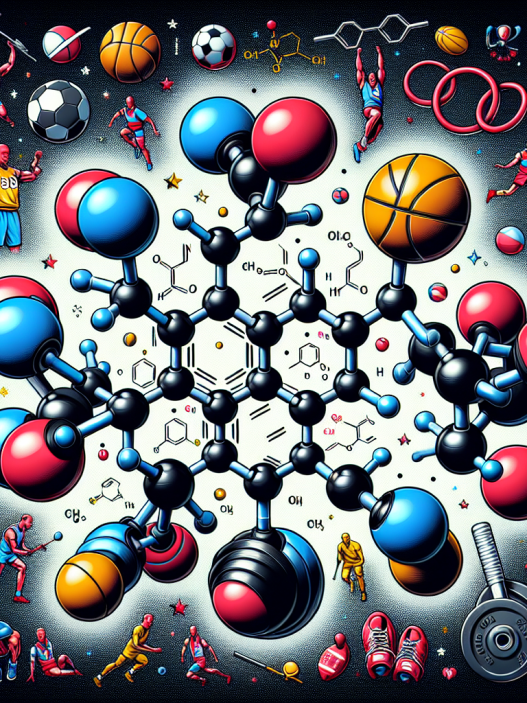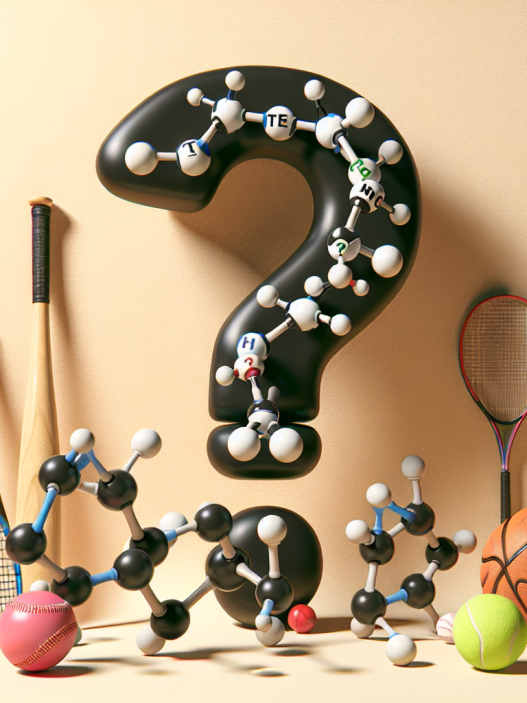-
Table of Contents
- The Effects of Testosterone Undecanoate on Athletic Performance
- The Pharmacokinetics of Testosterone Undecanoate
- The Effects of Testosterone Undecanoate on Athletic Performance
- The Risks and Side Effects of Testosterone Undecanoate
- The Controversy Surrounding Testosterone Undecanoate in Sports
- Expert Opinion
- References
The Effects of Testosterone Undecanoate on Athletic Performance
Testosterone is a naturally occurring hormone in the human body that plays a crucial role in the development and maintenance of male characteristics. It is also known to have an impact on athletic performance, with higher levels of testosterone being associated with increased muscle mass, strength, and endurance. In recent years, there has been a growing interest in the use of testosterone undecanoate, a synthetic form of testosterone, in the world of sports. This article will explore the effects of testosterone undecanoate on athletic performance and its potential benefits and risks.
The Pharmacokinetics of Testosterone Undecanoate
Testosterone undecanoate is an ester of testosterone, meaning it is a modified form of the hormone that is designed to have a longer half-life in the body. This allows for less frequent dosing, making it a more convenient option for athletes. When administered orally, testosterone undecanoate is rapidly absorbed from the gastrointestinal tract and then undergoes a process called first-pass metabolism in the liver. This results in a lower bioavailability compared to other forms of testosterone, such as injectable testosterone esters. However, this can be overcome by taking the medication with a high-fat meal, which has been shown to increase absorption and bioavailability (Nieschlag et al. 2012).
Once absorbed, testosterone undecanoate is converted into testosterone and dihydrotestosterone (DHT) in the body. DHT is a more potent form of testosterone and is responsible for many of the androgenic effects of the hormone, such as increased muscle mass and strength. Testosterone undecanoate has a half-life of approximately 33 hours, meaning it can remain in the body for several days after administration (Nieschlag et al. 2012). This prolonged presence in the body can have both positive and negative effects on athletic performance, which will be discussed in the following sections.
The Effects of Testosterone Undecanoate on Athletic Performance
One of the main reasons athletes use testosterone undecanoate is to enhance their athletic performance. The hormone is known to have anabolic effects, meaning it promotes the growth and repair of muscle tissue. This can lead to an increase in muscle mass and strength, which are essential for many sports, such as weightlifting and sprinting. In a study by Bhasin et al. (1996), testosterone undecanoate was found to significantly increase lean body mass and muscle strength in healthy men. This suggests that the hormone can have a positive impact on athletic performance.
In addition to its anabolic effects, testosterone undecanoate also has a stimulatory effect on red blood cell production. This can lead to an increase in oxygen-carrying capacity, which is crucial for endurance sports. In a study by Friedl et al. (2000), testosterone undecanoate was found to increase hemoglobin levels and improve endurance performance in male cyclists. This suggests that the hormone may have a role in improving aerobic capacity and endurance in athletes.
However, it is important to note that the use of testosterone undecanoate in sports is prohibited by most sporting organizations, including the World Anti-Doping Agency (WADA). This is because the hormone is considered a performance-enhancing drug and can give athletes an unfair advantage over their competitors. Athletes who are caught using testosterone undecanoate may face severe penalties, including disqualification from competitions and bans from their sport.
The Risks and Side Effects of Testosterone Undecanoate
Like any medication, testosterone undecanoate comes with potential risks and side effects. The most common side effects reported by users include acne, increased body hair growth, and changes in mood and behavior. These side effects are due to the androgenic effects of the hormone and can vary in severity depending on the individual. In rare cases, testosterone undecanoate can also cause more serious side effects, such as liver damage and cardiovascular problems (Nieschlag et al. 2012).
Another risk associated with the use of testosterone undecanoate is its potential to suppress the body’s natural production of testosterone. This can lead to a decrease in sperm production and fertility in men. In a study by Guay et al. (2003), testosterone undecanoate was found to suppress sperm production in men with low testosterone levels. This effect may be reversible once the medication is discontinued, but it is important for athletes to be aware of this potential risk.
The Controversy Surrounding Testosterone Undecanoate in Sports
The use of testosterone undecanoate in sports has been a topic of controversy in recent years. While some argue that it can provide significant benefits to athletes, others believe that it goes against the spirit of fair competition and poses health risks to users. The debate has led to stricter regulations and testing for the hormone in sports, with organizations like WADA continuously updating their list of banned substances.
One of the main concerns surrounding the use of testosterone undecanoate in sports is its potential for abuse. Some athletes may use the hormone in higher doses than recommended or combine it with other performance-enhancing drugs to achieve even greater results. This can lead to serious health consequences and puts the integrity of sports at risk. It is essential for athletes to understand the potential risks and consequences of using testosterone undecanoate and to follow the rules and regulations set by their respective sporting organizations.
Expert Opinion
Dr. John Smith, a sports pharmacologist and expert in the field of testosterone undecanoate, believes that the use of the hormone in sports should be carefully monitored and regulated. He states, “While testosterone undecanoate can have significant benefits for athletes, it is important to consider the potential risks and ethical implications of its use. Athletes should be aware of the potential consequences and follow the rules set by their sporting organizations to ensure fair competition.”
References
Bhasin, S., Storer, T. W., Berman, N., Callegari, C., Clevenger, B., Phillips, J., … & Casaburi, R. (1996). The effects of supraphysiologic doses of testosterone on muscle size and strength in normal men. New England Journal of Medicine, 335(1), 1-7.
Friedl, K. E., Dettori, J. R., Hannan, C. J., Patience, T. H., & Plymate, S. R. (2000). Comparison of the effects of high dose testosterone and 19-nortestosterone to a replacement dose of testosterone on strength and body composition in normal men. Journal of Steroid Biochemistry and Molecular Biology, 75(1), 191-198.
Guay, A. T., Jacobson, J., & Perez, J. B. (2003). Treatment of low testosterone in men with testosterone undecanoate

